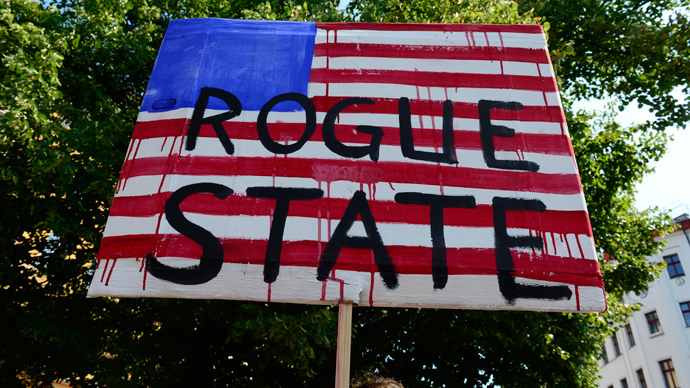US lost credibility as an ‘ethical internet steward’

The US has lost its reputation and credibility as the guardian of the internet as continued Snowden revelations expose the NSA’s wrongdoings, the director of the Open Technology Institute Sascha Meinrath told RT.
RT:Do you believe the fallout from the scandal might
actually lead to Washington reviewing, or curbing its
surveillance methods?
Sascha Meinrath: I should hope so. It is clear that what
the US has been doing is not sustainable over time. This has
created a massive reputational crisis for the US. This is a
Sputnik moment for the rest of the globe for the entire populace
is in essence on edge about what the US government is doing, what
is the NSA doing, what is being surveilled. I mean we are not
just talking about 70 million phone calls in France. We are
talking about 70 million phone calls in a single month. So in
essence what we’re saying is everyone is a suspect and everyone
is being surveilled. And it is probably not just France and
Germany, and Mexico and Brazil, this is probably globally.
RT:The US Secretary of State told reporters in Paris
that American surveillance activities were key to protecting the
world from terrorism - but do you believe that?
SM: I do believe there is a place for legitimate law
enforcement and surveillance but it is clear that when we are
hacking the phone calls of the entire populace of France, when
we’re going after the national oil company of Brazil, when we’re
surveilling the EU delegation – these aren’t terrorists. This is
not about terrorism. This is about economic surveillance, this is
about political surveillance, not to stop terrorism but to give
us a leg up in various negotiations and various information
flows. This is clearly far beyond just protecting the American
people. It is now into all facets of what the US government is
doing.

RT:Do you believe countries like Germany and France
really had no idea of the US's spying activities - or are they
now simply trying to score points with the electorate?
SM: I think you’re exactly right. There is clearly a lot
of complicitness from a number of these countries and there are
also some countries that would rather they be the ones that are
surveilling their own populaces. In one way a lot what the
Snowden revelations have made clear is that there needs to be an
open conversation about this balance between law enforcement,
surveillance, national security and our rights online. This
really comes down to a normative discussion around what should be
our fundamental privacy rights and how do we balance within the
civil society the rights of the individual and the needs of
society at large.
RT:What diplomatic fallout will all of this have for the
US?
SM: I think we’re amidst history, so the diplomatic
fallout is still to be determined, but certainly we have lost a
lot of credibility as an ethical internet steward. Whereas we
would have been trusted in previous years to do a lot of the same
things that we are doing today, now as one of the chief
architects and in essence stewards of the internet, there is a
lot of rightful concern about the trajectory the US has led us
on. And let’s be clear. This trajectory is rather bleak. For
those that would say, it is ok if the US does it. If we set an
international norm where every country on the planet has the
right to surveil everyone else on the planet, that is not the
kind of civil society that we actually want to promote. A lot of
it comes down to what are the international norms that we want to
see in the online world.
The statements, views and opinions expressed in this column are solely those of the author and do not necessarily represent those of RT.












